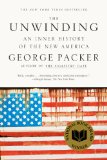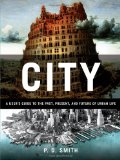Summary | Excerpt | Reading Guide | Reviews | Beyond the book | Read-Alikes | Genres & Themes | Author Bio

Americans in Paris
by David McCulloughRated Best Book of 2011, Runner Up by BookBrowse Members
Gorgeous and exhilarating, The Greater Journey surveys the varieties of American greatness expressed over a seventy-year period in Paris. McCullough demonstrates how Paris was a muse to a variety of American men and women (among them, academics, scientists, artists, and politicians), and he describes how the city's cultural and political offerings tested, inspired, educated, ennobled and enabled its talented American visitors.
Despite the breathtaking range and fascinating intricacies of McCullough's history, including the varied achievements of Americans in Paris and the many splendors of the city, a modest but powerful preoccupation connects the stories - work, hard work, relentless work. The disparate individuals McCullough follows are united by a serious sense of purpose that carries them, regardless of hardship and danger, away from America to Paris. With high hopes, they aspired "to excel in work that mattered greatly to them, and they saw time in Paris, the experience of Paris, as essential to achieving that dream."
Some, like the young portraitist George Healy, "...knew no one in France... [were] utterly ignorant of the language... did not know what [they] should do when once there..." But they all possessed, like Healy, "a great stock of courage... and a strong desire to be [their] very best." A heroic striving for greatness, an openness to the new, a desire for knowledge, and a real joie de vivre animate every history McCullough relates - from medical student Oliver Wendell Holmes to sculptor Augustus Saint-Gaudens, whose proletarian quotation serves as the book's epigraph - "For we constantly deal with practical problems, with moulders, contractors, derricks, stonemen, trucks, rubbish, plasterers, and what-not-else, all the while trying to soar into the blue."
In spite of its compelling historical details (Paris's first restaurant, its ghastly dissection theaters, its grand expositions, the construction of the Statue of Liberty and the Eiffel Tower, the glory of its spring), The Greater Journey is not a historical travelogue, nor is it definitively about Paris. McCullough's focus is American greatness and how one American generation achieved it.
McCullough demonstrates that Paris offered intense, liberating experiences that enlarged aspirations, perfected talents, and illuminated the future. For artists, it was living with great works of architecture, working in the studios of living French artists, and copying works of the past in the Louvre; for medical students, Paris offered highly advanced medical educations and clinical work. For politician and Ambassador to France, Elihu Washburne, the challenge of war and the experience of Paris under siege were occasions for the honing of his wisdom, courage and patriotism. Seeing African Americans accepted as equals was transformative for Charles Sumner; for Mary Cassatt, seeing a Degas painting, "changed [her] life." McCullough explains, "[Cassatt] was by no means exaggerating. It changed her life because it changed her work. An entirely new way of seeing and painting, for which she was to become famous, began then."
The Greater Journey is a history of Paris-inspired life-changes like Cassatt's, a record of the transformative moments that led to greatness and changed the world. Along the way McCullough celebrates the joy, freedom, and beauty Paris offered at that time; notes the loves, sorrows, losses, and important friendships Americans found there; and reminds us that between inspiration and fame came years of determined and good-old American hard work.
![]() This review was originally published in The BookBrowse Review in August 2011, and has been updated for the
May 2012 edition.
Click here to go to this issue.
This review was originally published in The BookBrowse Review in August 2011, and has been updated for the
May 2012 edition.
Click here to go to this issue.

If you liked The Greater Journey, try these:

by George Packer
Published 2014
A riveting examination of a nation in crisis, from one of the finest political journalists of our generation.

by P.D. Smith
Published 2012
With erudite prose and carefully chosen illustrations, this unique work of metatourism explores what cities are and how they work. It covers history, customs and language, districts, transport, money, work, shops and markets, and tourist sites, creating a fantastically detailed portrait of the city through history and into the future.
Your guide toexceptional books
BookBrowse seeks out and recommends the best in contemporary fiction and nonfiction—books that not only engage and entertain but also deepen our understanding of ourselves and the world around us.